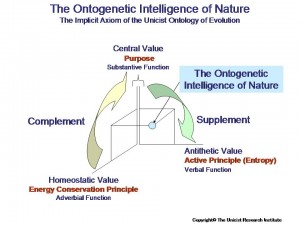The use of dualistic logic to deal with the here and now
While the unicist double dialectical approach requires investing energy to apprehend the nature of reality, dualism provides the most energy saving approach to manage the “here and now”.
 The dualistic logic implies using Hegel`s or Marx`s dialectics. This use has a specific functionality in order to allow dealing with aspects that require an operational approach to deal with the here and now.
The dualistic logic implies using Hegel`s or Marx`s dialectics. This use has a specific functionality in order to allow dealing with aspects that require an operational approach to deal with the here and now.
It allows accepting “absolutes” in order to separate what is true from what is false. This gives dualistic thinkers the perception of inner freedom while they move within the boundaries of the absolute.
Dualistic thinking also allows avoiding uncertainty. Uncertainty is an unbearable feeling for people that forces them to use dualism to analyze reality until they are able to eliminate the uncertainty from the environment.
It has to be considered that while analysis requires the use of a dualistic logic, synthesis requires the use of unicist double dialectical logic.
The energy conservation functionality of a dualistic logic is given by its capacity to avoid ambiguity. It provides a spontaneous solution that confirms the “absolute” individuals have in their mind.
It has to be considered that dualistic thinkers cannot infer the future and need to forecast it using any kind of extrapolation. This implies assuming that the past and the future are symmetric which is “an aprioristic” fallacy.
Peter Belohlavek
NOTE: The Unicist Research Institute was the pioneer in using the unicist logical approach in complexity science research and became a private global decentralized leading research organization in the field of human adaptive systems. It has an academic arm and a business arm.
http://www.unicist-school.org/future-research/wp-content/uploads/2016/01/turi-1.pdf

